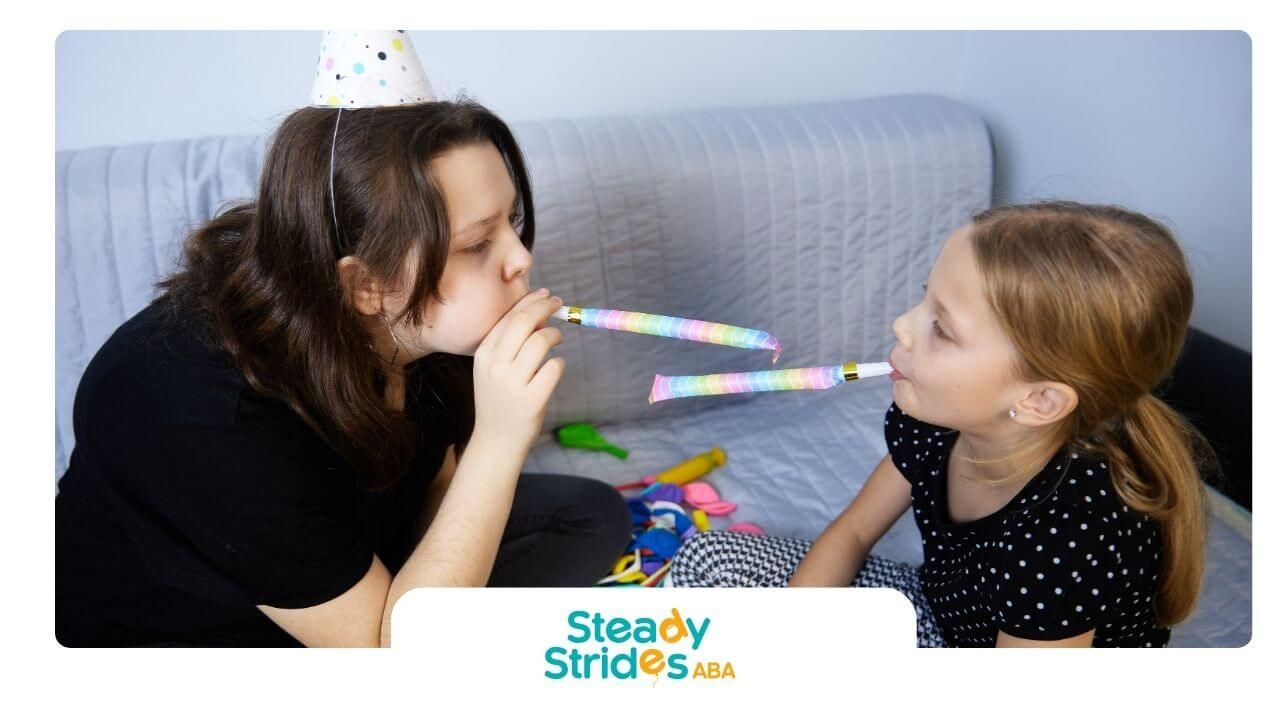Children with autism often have differences in how they use and understand language. These variations don’t always mean a lack of speech, but rather a difference in how language is expressed. Some children might repeat words or phrases (a behavior known as echolalia), while others may speak with an unusual tone, rhythm, or pitch.
Communication challenges may also appear in social contexts. For example, a child might speak fluently but struggle with back-and-forth conversations, making it harder to build peer relationships. Others may have limited vocabulary or use language in ways that seem overly formal or out of context.
Recognizing these speech differences early allows for tailored support that fosters progress over time. If you notice your child talks differently or has difficulty communicating, a developmental evaluation can provide helpful insight and guidance for next steps.
At Steady Strides ABA, we understand that each child’s communication journey is unique. Through personalized ABA therapy and collaboration with speech professionals, we help children improve not just verbal skills but also comprehension, social language, and confidence in everyday interactions.
Frequently Asked Questions
Do children with autism have unique speech patterns?
Yes, some children with autism may speak in ways that differ from neurotypical peers, such as unusual tone, pitch, or rhythm.
What are common differences in how autistic children talk?
They might repeat phrases (echolalia), use a monotone voice, or speak in a very formal or robotic way.
Is speech delay always present in autism?
Not always. Some children speak early but may use language differently or struggle with back-and-forth conversation.
Sources:
https://www.urmc.rochester.edu/encyclopedia/content?ContentTypeID=90&ContentID=P02556
https://educationonline.ku.edu/community/communication-difficulties-in-autism-spectrum-disorder
https://www.childrensdevelopmentalservices.com/blog/types-of-autism-speech-patterns













